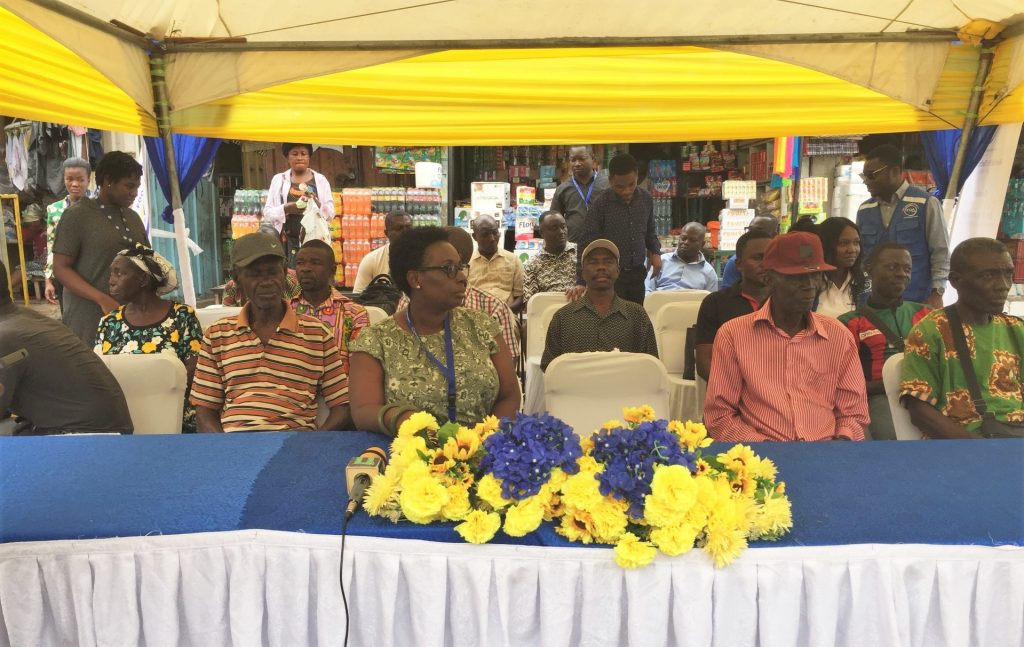By Prince Agyapong
Koforidua (E/R), Sept. 5, GNA – The Eastern Regional branch of the Food and Drugs Authority (FDA) has carried out a public education and communication campaign on medicine safety.
The initiative was organised in collaboration with the USAID US Pharmacopoeia’s Promoting Quality Medicines plus (PQM+) project as part of efforts to improve the quality of medicines.
Speaking to lorry station workers, passengers, transport owners, and drivers in Koforidua, Mrs Anita Owusu Kuffuor, the Acting Head of the Eastern Regional FDA, said the initiative had been launched to strengthen consumer and patient education.
It was also intended to involve them in pharmacovigilance endeavours, including cover identification, evaluation, comprehension, and mitigation of adverse effects caused by medications or other drug-related issues, she said.
She said the new initiative would extend regulations and enhance reporting of Adverse Drug Reactions (ADRs) to individuals in low-income communities in the eastern region.
She added that it would bring these regulations closer to the average person, ensuring improved awareness and monitoring of ADRs, adding that most individuals at the lorry stations, may face time constraints, preventing them from attending organised pharmacovigilance events.
Mrs Kuffuor said it remained the responsibility of the FDA, to enhance awareness regarding medicine safety and guarantee the consumption of high-quality medication.
She acknowledged the fact that although experiencing side effects after taking medications was normal, it was crucial for individual patients and consumers to report these adverse effects to the FDA.
She also said, patients and consumers could also report side effects of medicines to the pharmacy, clinic or hospital where the product was obtained.
Mrs Kuffuor indicated that the FDA had blue forms, a medicine app and an open-door policy for individuals to report any concerns and assured that all reports would be acknowledged, and appropriate actions taken.
She also encouraged manufacturers to utilise appropriate channels for selling their products, denouncing the practice of hawking and making unsubstantiated claims about their merchandise that do not align with approved medication.
Mrs Kuffuor said the authority was doing everything possible to clear the market of unregistered, unwholesome, and substandard products entering it through porous borders.
She added, “We are educating importers, distributors, and wholesalers to make sure that the goods they are selling have received proper FDA registration and approval.”

Mr Peter Alordji, the Senior Regulatory Officer of the FDA, said the authority was vigilant on the PQM+ project and had already started active surveillance, where they visited patients at hospitals to find out the outcome of their prescribed medicines.
He said sensitisation was important in informing individuals of the appropriate steps to take when they experienced any negative side effects after taking medicine, and cautioned the drivers not to drive immediately after taking drugs that could caused dizziness and highness among others, ensure road safety.
Mr Kwame Agyare, the Financial Secretary of the Ghana Private Road Transport Union for Koforidua-Kumasi station, commended the FDA for educating hawkers, workers, drivers, and passengers to desist from taking unapproved medicines.
He complained about hawking medicine in bus stops, saying: “Imagine loading a 14-seat motor van, and these hawkers stand in the van and talk while they do not know whether these people have complications or not.”
He called for the practice of selling medicines and medicinal products at lorry stations to stop and also advised drivers and individuals to refrain from buying unregistered and unwholesome products.
GNA